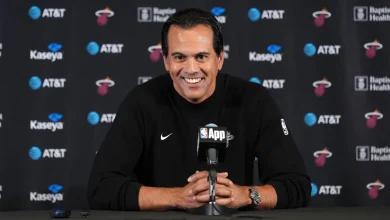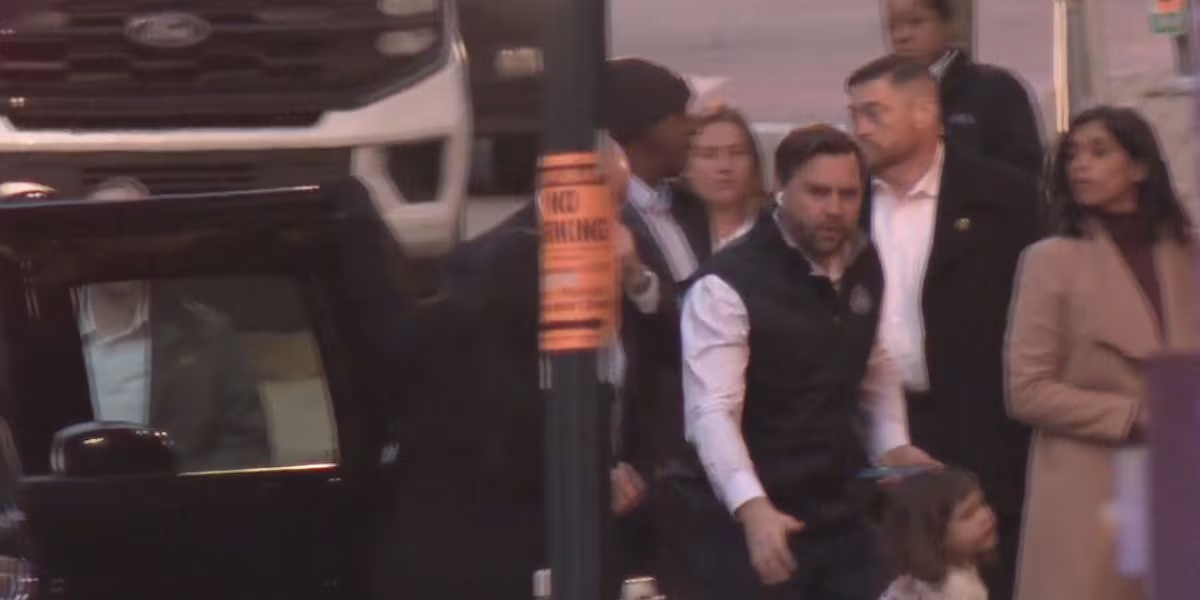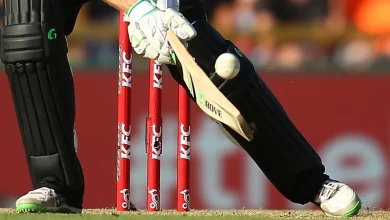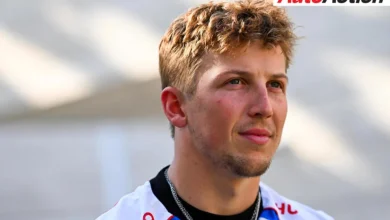‘A giant game of chicken’: Trump’s Venezuela standoff edges toward conflict
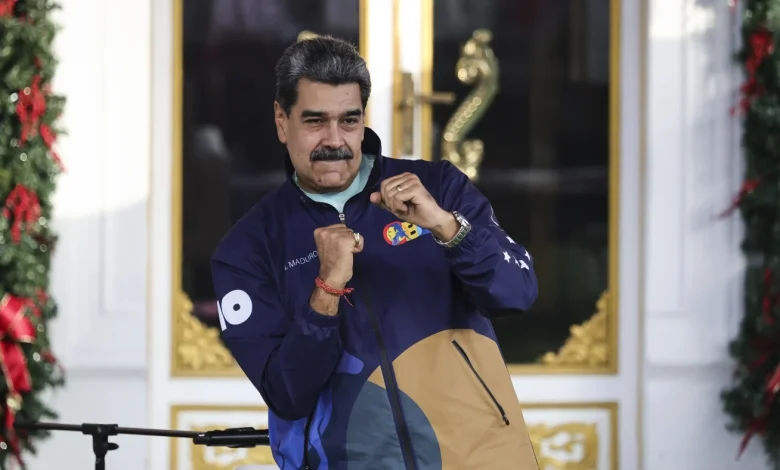
President of Venezuela Nicolás Maduro dances during a march as part of the “Venezuelan Student Day” at Miraflores in Caracas, Venezuela, on Nov. 21.
Jesus Vargas/Getty Images
hide caption
toggle caption
Jesus Vargas/Getty Images
BOGOTÁ, Colombia — The U.S. military buildup in the southern Caribbean Sea near Venezuela is raising expectations of an armed strike against that country but also fears that that it could create a South American quagmire.
Tension is building as the Trump administration amasses warships and thousands of troops in the Caribbean. On Monday, it designated the Venezuela’s government, led by President Nicolás Maduro, as a foreign terrorist organization. And while saying Tuesday that he was open to talking with Maduro, President Trump has also hinted that the authoritarian leader’s days are numbered.
But American military intervention, which is strongly supported by many Venezuelans, including opposition leader and Nobel Peace Prize recipient María Corina Machado, would be unpopular at home and extremely risky.
“This cozy idea that somehow Maduro falls and the next day María Corina Machado walks into the presidential palace and everybody lives happily ever after is fantastical,” said Phil Gunson, who is based in Caracas for the International Crisis Group. “That won’t happen.”
Ever since his first term, President Trump has pushed to depose Maduro, who has crushed Venezuela’s democracy and led the country into economic misery, prompting some 8 million Venezuelans to flee the country. Trump has long encouraged Venezuelan military officers to overthrow Maduro and in 2019 recognized opposition lawmaker Juan Guaidó as the country’s legitimate president.
But Maduro has clung to power, prompting Trump, in his second term, to consider military options.
The most extreme would be a full-fledged U.S. invasion along the lines of the American takeover of the tiny isthmus of Panama in 1989 that involved 27,000 American troops and led to the arrest of that country’s dictator, Manuel Noriega.
But even though Trump has dispatched the largest U.S. naval flotilla to the Caribbean since the Cuban Missile Crisis, experts say the 15,000 U.S. troops aboard those warships would not be enough to take control of Venezuela. The South American country is larger than Texas and home to rugged mountains and Amazon jungle.
Should the U.S. put together a more robust invasion force, it could quickly subdue Venezuela’s army. Indeed, many of its poorly paid rank-and-file soldiers might switch sides. But there would be substantial push back from unconventional forces, says Jeremy McDermott, co-director of Insight Crime, which analyzes organized crime in Latin America.
“Any serious land invasion of Venezuela would be extremely complex,” McDermott said. “You put boots on the ground almost anywhere in Venezuela, particularly in Caracas and along the border areas, and you are going to face armed resistance.”
That resistance, he said, would include pro-Maduro militias, known as “colectivos,” as well as at least 1,000 battle-hardened Colombian guerrillas who are based inside Venezuela, sympathize with Maduro, and would act as a pro-regime paramilitary force in the event of a U.S. invasion. In addition, the Maduro government has been handing out weapons to civilians and training them to shoot.
“This is a peoples war to defend our country,” one military trainer told Venezuelan state TV.
Yet most Venezuelans despise Maduro and voted against him in last year’s presidential election that was considered by many — including the U.S. government — to have been stolen by his regime. One Venezuelan analyst, who asked to remain anonymous for his safety, said he’s seen polling, yet to be made public, that shows that most Venezuelans would support U.S. military action to remove Maduro.
“There is no other way,” said Zair Mundaray, a former Venezuelan government prosecutor now living in exile in Florida.
Last week, opposition leader Machado issued a “freedom manifesto” for a post-Maduro future calling for the restoration of human rights, free markets, free speech, clean elections and the return of Venezuelan exiles. She declared: “We stand at the edge of a new era.”
Meanwhile, anti-government influencers in Venezuela are promoting AI-generated videos fantasizing about U.S. intervention. One shows Maduro in an orange prison jumpsuit in the custody of American officials, with narration that says: “All Venezuelans want this as our Christmas present.”
That’s in sharp contrast to a new CBS News and YouGov poll in which 70% of Americans opposed American military action in Venezuela. In the same poll, just 13% considered Venezuela a “major threat” to the United States.
As a result, even a limited strike against Maduro, such as a catch-and-kill operation like the one against Osama Bin Laden – who was responsible for the Sept. 11, 2001, terrorist attacks — seems doubtful, says Venezuelan opposition congressman Henrique Capriles. In contrast to Bin Laden, “do Americans really care about Maduro?” Capriles said. “Not at all.”
Trump may be betting that his military buildup will create a pressure cooker in Caracas that will provoke a palace coup by military officers. But that’s a longshot as Maduro has surrounded himself with loyalists and Cuban bodyguards.
Vladimir Villegas, a Caracas radio show host, says that the impact of the U.S. pressure campaign so far has been to create more cohesion within the ranks of the Maduro regime as well as more persecution and repression of the political opposition.
Even if Maduro were toppled, there’s no guarantee the new leader would forge a stable, democratic government, Capriles says. He points out that Maduro controls all branches of government while members of his United Socialist Party occupy nearly every city hall and state house across the country.
What’s more, there would be rising demands for U.S. reconstruction aid following U.S.-backed overthrow of Maduro but Trump is, famously, no fan of nation-building.
“What about the day after” a coup? Capriles says. “Is the U.S. willing to spend $100 billion to help stabilize Venezuela?”
Officially, what’s being called “Operation Southern Spear” is an anti-narcotics mission with U.S. forces blowing up alleged drug boats in the Caribbean. But Venezuelan political analyst Benigno Alarcón says that’s not much to show for such a massive military buildup.
“I don’t think they can call this operation a success if all they do is sink 10 boats and kill 80 drug traffickers,” he says.
McDermott, of InsightCrime, calls the standoff “a giant game of chicken.”
“Maduro knows that if he can hang on, President Trump can’t keep 11% or more of U.S. fleet indefinitely off the coast of Venezuela,” he says. “So as long as Maduro doesn’t blink, time is on his side.”


